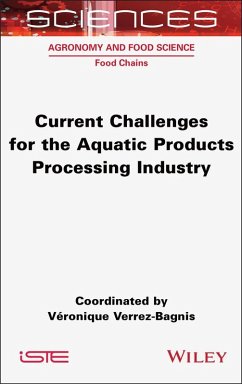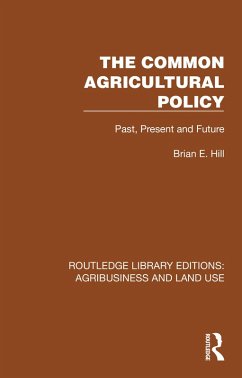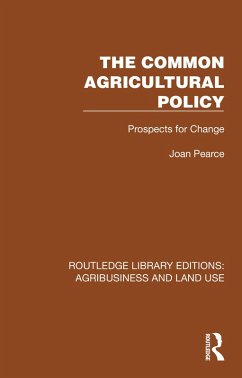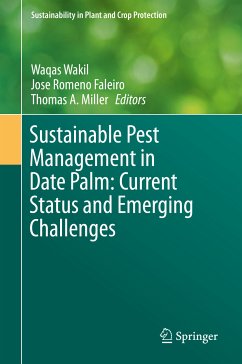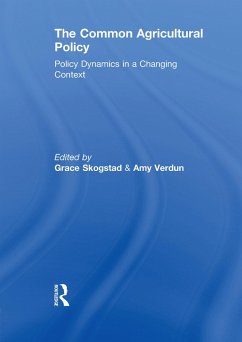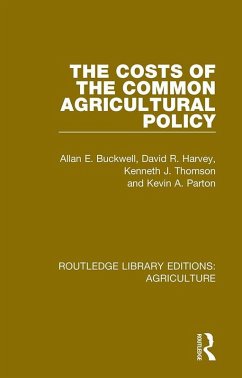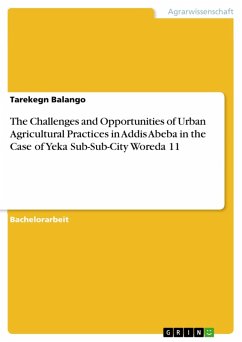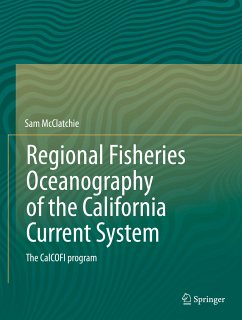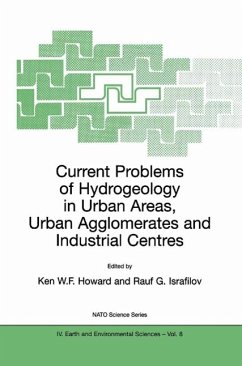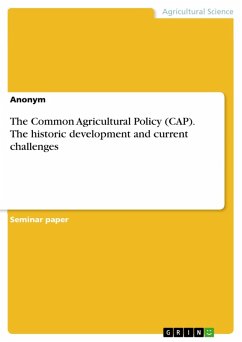
The Common Agricultural Policy (CAP). The historic development and current challenges (eBook, PDF)

PAYBACK Punkte
0 °P sammeln!
Seminar paper from the year 2018 in the subject Agrarian Studies, grade: 1,0, University of Applied Sciences Stuttgart, language: English, abstract: This paper deals with the following questions: What is the significance of the Common Agricultural Policy (CAP)? How did the CAP develop in the course of time and which milestones left their mark on the regulations of today's policy? What are the current problems and which challenges does the CAP have to respond to in the future? How will the development continue? As a researcher the topic is of great interest as it concerns every European tax pay...
Seminar paper from the year 2018 in the subject Agrarian Studies, grade: 1,0, University of Applied Sciences Stuttgart, language: English, abstract: This paper deals with the following questions: What is the significance of the Common Agricultural Policy (CAP)? How did the CAP develop in the course of time and which milestones left their mark on the regulations of today's policy? What are the current problems and which challenges does the CAP have to respond to in the future? How will the development continue? As a researcher the topic is of great interest as it concerns every European tax payer, the environmental change depends in certain aspects on the policy of the CAP as well as the quality of the European agricultural products. It's a prevalent topic which not every citizen is fully aware of and whose effects should be examined more in detail. Agriculture has many important needs to satisfy in the population and to ensure a wide range of social tasks: food production, production of biomass for power generation and material use, design and maintenance of cultural landscapes and biotopes, determination of animal welfare or the impact on social and economic structures. In order to promote these societal tasks of agriculture, the politics should set the framework in such a way that the economic activity of the farmers fulfills common welfare purposes at the same time. This is done by specifying duties as well as by creating incentives. In this regard the CAP of the European Union (=EU) has a great influence. In this context the time has come again for the EU commission to set the Multiannual Financial Framework (=MFF) for the period from 2021 to 2027. One of the biggest expenditures with about 54 billion euros a year is the CAP which is nowadays hardly criticised for promoting poverty and food security in developing countries through European subsidies. Interventions related to the agricultural policy cause a dilemma due to the fundamental conflict of interest between producers and consumers. On the one hand, the abolishment of the CAP apparently does not have a lot of negative consequences - according to the Joint Research Centre of the European commission the consequential decline of the agricultural production would be insignificant. On the other hand, the CAP does not have a lot of effects that harm its development, but a danger is prevalent that it might fall back into old patterns by e.g. using payments coupled to the production.
Dieser Download kann aus rechtlichen Gründen nur mit Rechnungsadresse in A, B, BG, CY, CZ, D, DK, EW, E, FIN, F, GR, HR, H, IRL, I, LT, L, LR, M, NL, PL, P, R, S, SLO, SK ausgeliefert werden.




